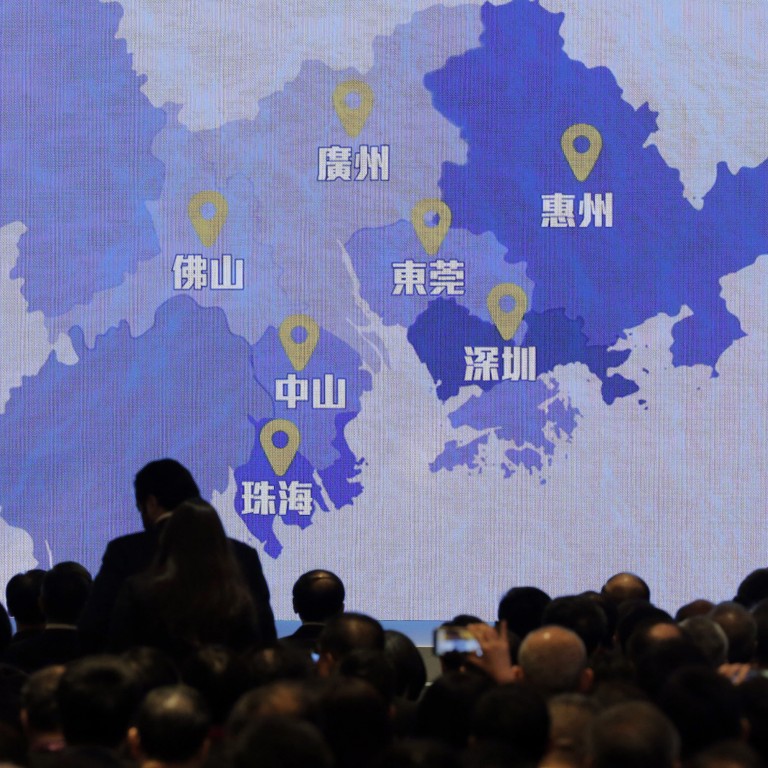
‘Know the consequences’ of missed opportunities in Greater Bay Area, former Hong Kong leader warns city
- Leung Chun-ying addresses forum, argues that messaging from neighbouring cities is clear but ‘our eyes and ears’ are not in area
- He champions city’s unique advantage, urging it to do more amid what he says is insufficient media coverage and analyses
Hongkongers should “know the consequences” of missed opportunities in Guangdong as a lack of exchanges during the coronavirus pandemic has widened the knowledge gap between the two sides, former city leader Leung Chun-ying has warned.
Leung told a forum organised by China Daily Hong Kong on Thursday that residents had not paid attention to neighbouring cities in the Greater Bay Area, an ambitious plan by Beijing to integrate the southern Chinese coastal region into a financial and technological powerhouse.
Leung, now a vice-chairman of the Chinese People’s Political Consultative Conference, said Hongkongers had not been responsive enough to the bay area plan, which has been in place for several years.

“The Guangdong [bay area] cities have been transparent and proactive in pushing the message over,” he said, referring to mainland Chinese policies to attract Hong Kong residents to work, study and set up companies across the border.
“But they are simply not picked up and not covered for the Hong Kong audience – not enough,” the former chief executive argued, pointing also to what he said were insufficiently detailed media reports, analyses or commentaries.
“Our eyes and ears are not in the Guangdong [bay area] cities,” he said.
Leung added that mainland opportunities for city residents ranged from business agreements signed between container ports in Hong Kong and Nansha, to personal income tax concessions and relatively affordable rental housing.
He suggested Hong Kong businesses and academics arrange more trips to visit mainland cities and set up branches there.
“Hong Kong should know the consequences of not braving the travel quarantine to get into Guangdong – the knowledge gap is getting wider,” Leung said. “If the travel restriction is the only reason for not being there on the ground, we should ask what plans are there for media reporters and researchers to hop over after the pandemic.”
Leung also noted there were chambers of commerce and professional bodies “whose members are keenly interested in the GBA integration”.
“We need actions. Seeing is believing, the nine cities on the other side of the Shenzhen river are huge and opportunities diverse,” he said. The bay area plan encompasses 11 regional cities, including Hong Kong and Macau.
“We should, as the most international city in the Greater Bay Area, reinforce our advantage as a super connector to share our knowledge of the Guangdong GBA cities … This is the unique advantage that can be used to put Hong Kong on the world map again.”

Speaking at the same event, Chief Executive John Lee Ka-chiu said his administration had made various plans to boost the city’s technology and cultural sectors, and he was confident that Hong Kong, through closer collaboration with other cities in Guangdong, could help promote China in the global arena.
Lee also said that under the “one country, two systems” governing policy, Hong Kong had the support of the central government to reinforce its status as a global financial, trade and shipping centre.

